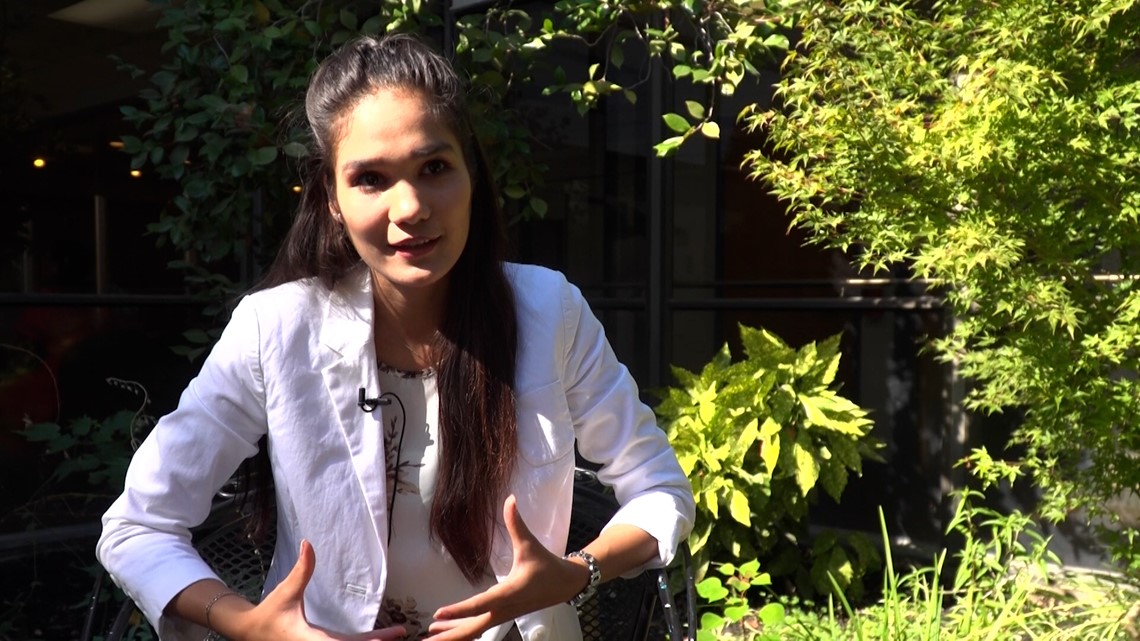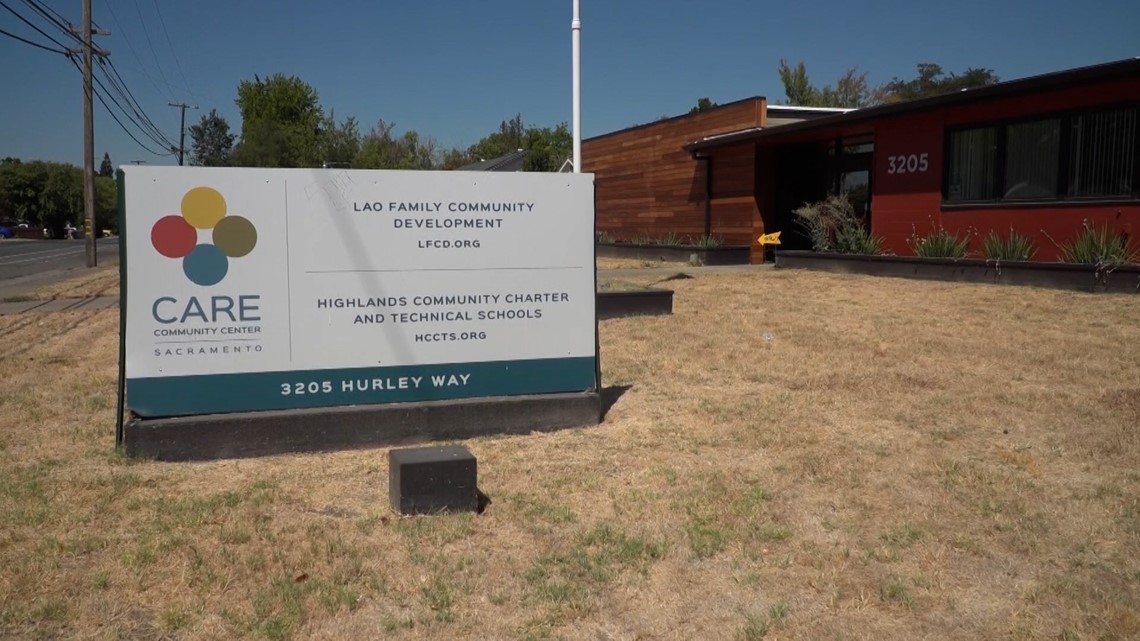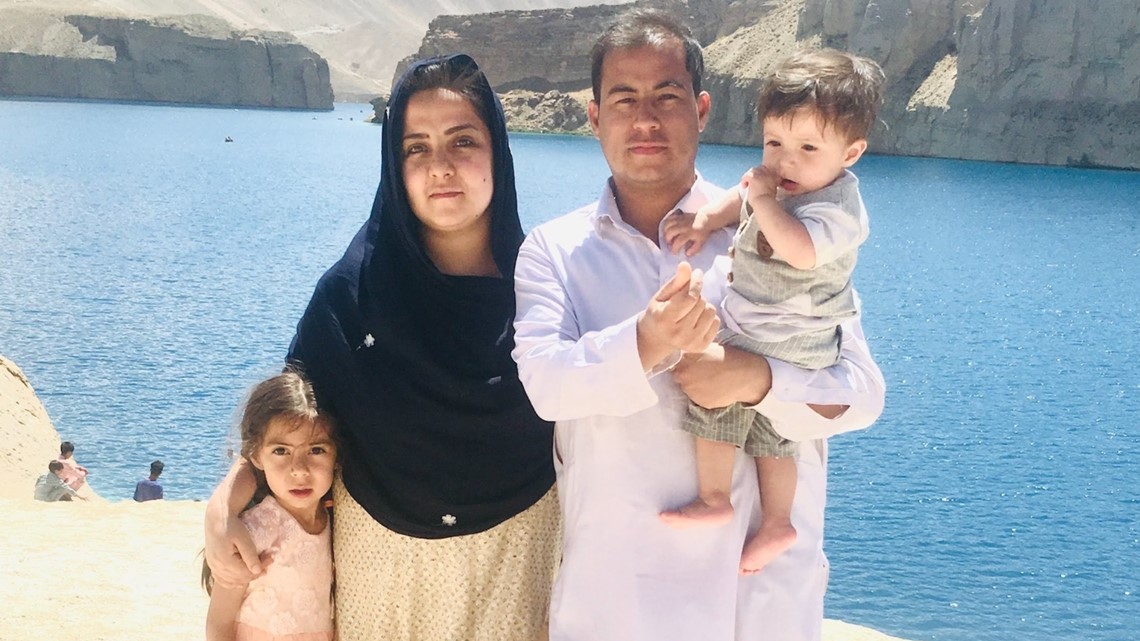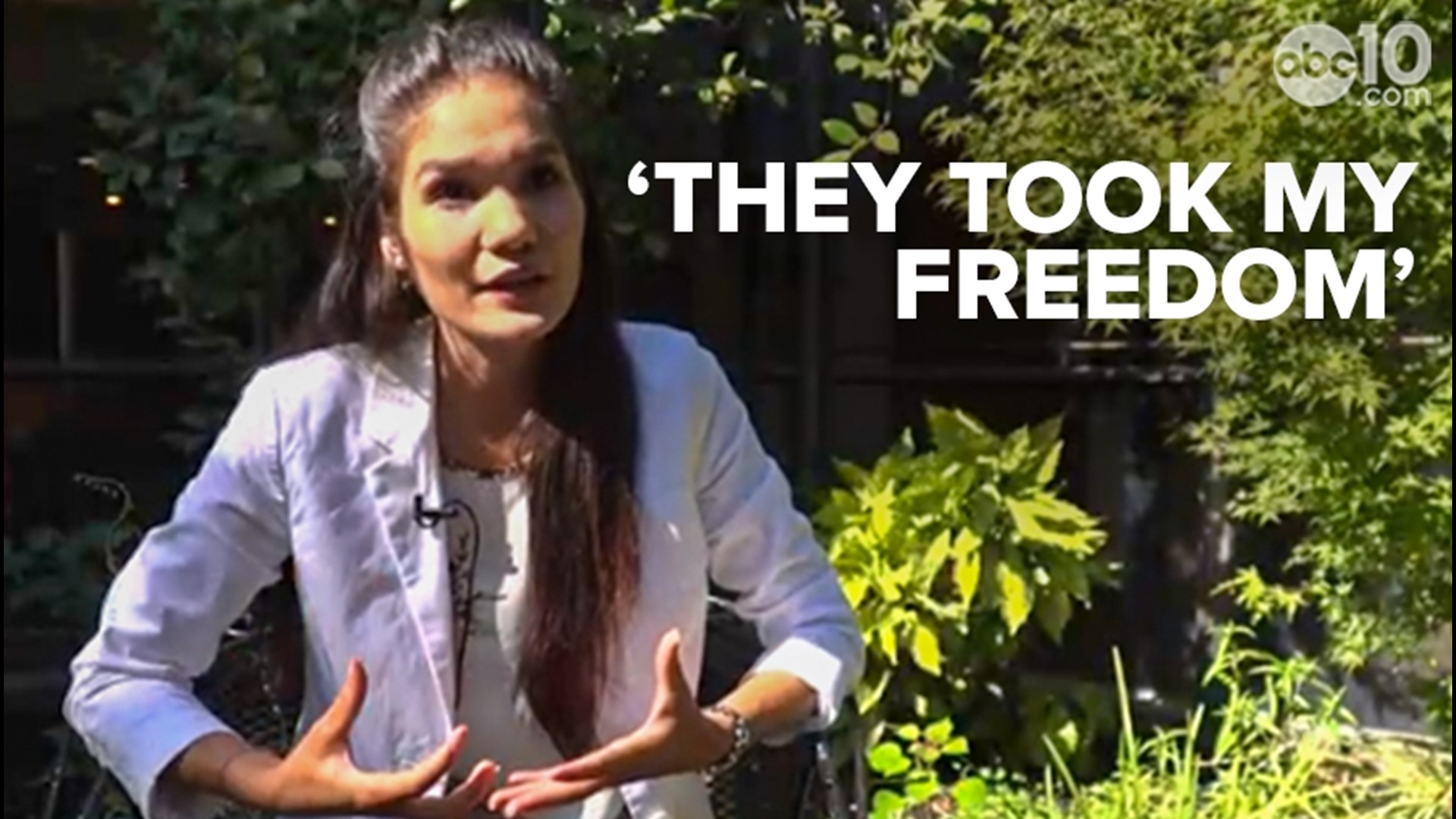SACRAMENTO, Calif. — Tahmina Herawie, who's from the Afghan capital city of Kabul, has been living in Sacramento for one year. She says she left her home in Afghanistan with her family for safety.
"My worst nightmare came true," said Herawie. "The Taliban took my country. They took my freedom."
The Taliban entered Kabul and took control of the country on Aug. 15, 2021. It triggered tens of thousands of people to rush to Kabul's airport in hopes of evacuating via any flight out of Afghanistan.
Herawie says she had to wait months for a flight from Afghanistan to the U.S. due to dangers and chaos at the Kabul airport. She, along with her family, secured travel to a refugee camp in the U.S. in November of 2021.


"We were getting phone calls to leave the country," Herawie said. "But, we couldn't because of the airport situation and explosions. I lost a school friend due to an explosion. It was very hard for me."
Before the Taliban takeover, Herawie says she enjoyed living in Afghanistan. She was a student at Kabul University, studying finance and accounting. Herawie says she was expected to graduate with a degree in August 2021. But, at that same time, the Afghan government collapsed.
Now, Herawie is adjusting to a new life in Sacramento. She says she was able to find employment and housing over the year. The journey, however, was not easy.
"When I got to Sacramento, my education was not happening, my work was not happening, and I didn't know any people," Herawie said. "It was new, and I was missing my home."
According to Lao Family Community Development, a nonprofit organization dedicated to helping immigrant, refugee and U.S. born low-income families, more than 100,000 Afghan refugees are now living in the U.S. About 12,000 live in California, including 8,000 in the Greater Sacramento region.
"Lao Family is a trusted partner whose mission is to advance the well being of our community," said Kathy Chao Rothberg, CEO, Lao Family Community Development. "Afghan refugees need clothing, food, jobs and a community for support."


Lao Family Community Development has helped at least 219 Afghan refugees, like Herawie, in the last year in Sacramento. Lao Family provides a number of services, like income and family support, education, health, housing and employer services.
As an Afghan refugee, Shafiuwlah Ahmadi also relies on Lao Family for support. He's originally from Kabul too. Ahmadi says he was forced to leave Afghanistan for the U.S. without his wife and two children amid the Taliban takeover.
"Nobody wants to leave their family," said Ahmadi. "I tried to get them out of Afghanistan. But, at the airport, there were attacks. I do not want to hurt my family or my babies. I want to be with my family. I call them all the time and tell them to be patient. One day, we will be one family in one home."


According to the UN Refugee Agency, more than 6 million Afghans have been driven out of their homes and their country by conflict, violence and poverty. About 85% of them are living in Pakistan and Iran.
While searching for safety and a new life, many Afghan refugees face significant challenges and barriers. That includes poverty, unemployment, housing insecurity, homelessness, limited-English proficiency, food insecurity, no transportation and more.
For those still living in Afghanistan, under Taliban rule, internal displacement remains a crisis. In 2021, an additional 777,400 Afghans were displaced across all provinces. The UNHCR says women and children account for 80% of all people forcibly displaced in Afghanistan.
“Afghanistan’s displacement crisis is one of the largest and most protracted in UNHCR’s seven-decade history," said Filippo Grandi, UN High Commissioner for Refugees. "We’re now seeing a third generation of Afghan children born in exile."
To help Afghans, you might want to consider making a donation to the UNHCR. You can also provide donations to Lao Family Community Development in Sacramento. That includes monetary gifts and gently used clothes, shoes or household items, like pots, dishes, and even furniture for recently-arrived refugees.
WATCH ALSO:



















